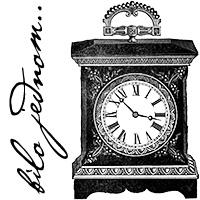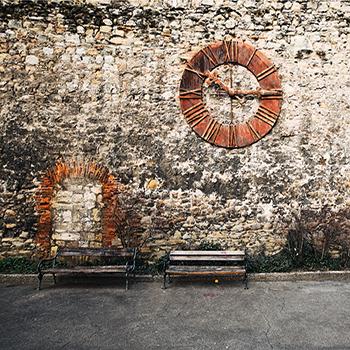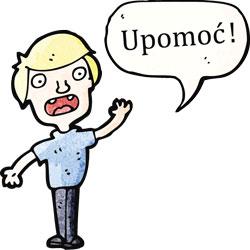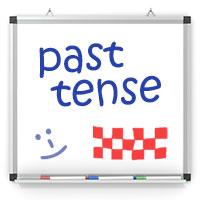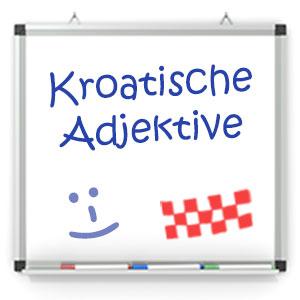Verbs in the past tense
Each verb used in past tense is made of two words: one is always the present tense of the verb “to be” (biti) and the other, which is called the past participle, is derived from whichever verb you want to use.
Here is a quick reminder on how to conjugate verb “to be”:
| Person | Pronoun | Verb form | | Person | Pronoun | Verb form |
|---|
| 1st/Sing |
ja |
sam |
|
1st/Plur |
mi |
smo |
| 2nd/Sing |
ti |
si |
|
2nd/Plur |
Vi/vi |
ste |
| 3rd/Sing |
on/ona/ono |
je |
|
3rd/Plur |
oni/one/ona |
su |
| |
|
|
|
|
|
|
Examples of past tense:
kuhati – to cook Marko je kuhao – Marko cooked
je – verb “to be” (3rd person singular)
kuhao – past participle (masculine, singular)
spavati – to sleep Ivan je spavao – Ivan slept
je – verb “to be” (3rd person singular)
spavao – past participle (masculine, singular)
How is the past participle formed?
Although at first it appears more complicated, in some ways the past tense in Croatian is easier to use than the present tense.
Croatian verbs fall into seven different conjugation categories. The differences in conjugation are more apparent – and require more thought – in the present tense. In the past tense (if you choose to ignore the grammatical rules taking place in the background) for most verbs you can simply remove the suffix –ti from the infinitive form of the verb and add the gender-related suffix to create the past participle.
In Croatian, adjectives alway have to agree with the subject of the sentence in terms of gender, for example: (Ana je lijepa – Ana is beautiful / Marko je pametan – Marko is smart). The past participle works the same way:
Marko je mislio – Marko thought
Ja sam mislio – I thought
Ana je mislila – Ana thought
Ja sam mislila – I thought
All that is necessary is to learn the following gender-related endings:
| |
masculine |
feminine |
neuter |
| Nominative Singular |
–o |
–la |
–lo |
| Nominative Plural |
–li |
–le |
–la |
| |
|
|
|
Examples: Forming sentences in the past tense
How can we say “Ana slept” in Croatian?
Ana is the subject and the verb is “spavati”.
First we need the verb “to be” in the third person (“Ana je ...”) and then a past participle with the suffix for feminine, singular form (spava - ti spava + la).
Ana slept Ana je spavala
To say “We cooked”, the process is the same:
We (“mi”) is the subject and the verb is “kuhati”.
First we need the verb “to be” in the first person plural (“Mi smo ...”) and then a past participle with the suffix for masculine, plural form (kuha - ti kuha + li).
We cooked Mi smo kuhali
What about if you want to say “I learnt Croatian?”
I (“ja”) is the subject and the verb is “učiti”.
First we need the verb “to be” in the first person singular (“Ja sam…”) and then a past participle. If you're male, you will use the suffix for masculine, singular form (učiti - ti uči + o) and if you’re female, you will use the suffix for feminine, singular form (učiti - ti uči + la).
I learnt Croatian Ja sam učio hrvatski
I learnt Croatian Ja sam učila hrvatski
Exceptions to the rules
Of course, there are always a few exceptions, for example:
- Verbs which end with –jeti and – sti have a different ending for masculine form:
Examples:
htjeti – to want On je htio – He wanted / Ona je htjela – She wanted
gorjeti – to burn On je gorio – He burnt / Ona je gorjela – She burnt
pasti – to fall On je pao – He fell / Ona je pala – She fell
sjesti – to sit On je sjeo – He sat / Ona je sjela – She sat
- Verbs with end in –ći
Examples:
ići – to go On je išao – He went / Ona je išla – She went
naći – to find On je našao – He found / Ona je našla – She found
reći – to say On je rekao – He said / Ona je rekla – She said
Omitting personal pronouns
In everyday speech, Croatians often omit personal pronouns in the past tense. When doing so, it's important to remember that the verb “to be” should always be in the second position.
This means that to say “you slept” you can either say ti si spavao or spavao si. The second option generally sounds nicer and is used more commonly.
Ja sam bila u kinu or Bila sam u kinu – I was in the cinema
Mi smo kupili kruh or Kupili smo kruh – We bought bread
Oni su jeli pizzu or Jeli su pizzu – They ate pizza
Exercise: How would say the following in the past tense?
Ana ran
Answer
Ana je trčala
Ivo sang
Answer
Ivo je pjevao
Ana and Ivo sang
Answer
Ana i Ivo su pjevali
We watched television
Answer
Mi smo gledali TV / Gledali smo TV
They went to the cinema
Answer
Oni su išli u kino / Išli su u kino
I was hungry
Answer
Ja sam bila gladna / Bila sam gladna
You played football (plural)
Answer
Vi ste igrali nogomet / Igrali ste nogomet
Željka wanted some juice
Answer
Željka je htjela sok
I studied
Answer
Ja sam učio / Učio sam

